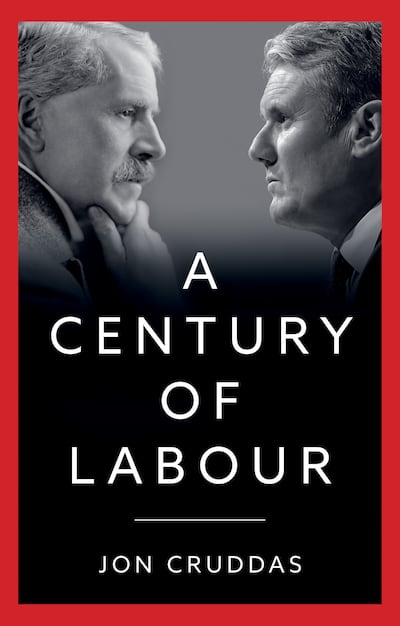For anyone attempting to understand how the British Labour Party has been transformed in recent times, a new history of the movement’s first 100 years demonstrates just how it has been able to reinvent itself.
With polls showing a 20-point lead for Labour over the governing Conservative Party, the former’s transformation is from something of a democratic pariah to a potential government. But outsiders could be forgiven for wondering how real the overhaul has been.
Veteran MP Jon Cruddas uses his book A Century of Labour to illustrate its recent changes, and he provides valuable insights into how Labour has reverted to the moderate centre. In the last pages of the soon-to-be-released book, Mr Cruddas provides a reassurance that the party, having survived former leader Jeremy Corbyn’s search for its essential socialist identity, can withstand the authoritarian populism even in government.
With the left either crumbling to new extremist parties in countries such as France or splitting into hard-left factions as in Germany, this is important for the direction of European politics. One commentator in Foreign Policy magazine last week went so far as to proclaim Labour leader Keir Starmer as an incoming global beacon where the light of “responsible centrism shines bright”.
The hard-left activist Aaron Bastani, a Corbyn acolyte, claimed “Prime Minister Starmer” would be more hawkish than any Conservative. “One can also see how issues of foreign policy might quickly appeal to a Labour prime minister whose opportunities for domestic reform are constrained,” he wrote.

Mr Cruddas has identified three competing strands within the Labour movement. The first is to see redistribution of wealth within UK society so that the richer give up resources for the poorest. The second is its long lineage as a party devoted to the freedoms of the kind embedded in the Magna Carta principles. And the third is its concern with a progressive agenda that seeks to reform and overhaul society at home and abroad.
Warning against simply relying on the heavy hand of the state, Mr Cruddas sees the need for an idealistic programme that demonstrates that the country can be made fairer and repositioned on the international stage. At a time of stagnant growth for European economies, Labour could find bold ways to buck the trend and overcome discontent with the shrinking economic pie.
A Labour think tank put it differently, as it examined the results of internal polling. It said that the party membership is divided between ideologues, idealists and instrumentalists (or members who will pragmatically go along with a programme for power).
If there is a Labour government as a result of the 2024 general election, its success will not just be down to domestic improvements in the welfare state and other London-based directives to restructure the economy. It will also need to combine these instincts with more global concerns about equality, development and the reduction of international tensions.
These are some of the reasons behind last week’s launch of the Labour Middle East Council. The body – co-chaired by the distinguished former diplomat William Patey, a former ambassador to Saudi Arabia – sees the need for the party to inform how it approaches the region as it looks to enter government.
When I spoke to Mr Patey in central London, he discussed how almost 15 years out of power had affected Labour’s policy development and its base of connections to a region that is globally vital.

The council’s starting point, as it is launched, is that Labour in government has always had a broad international agenda – and so it is important to listen to Middle East voices to understand both the region’s own aspirations and its perspectives on Britain.
“How would an incoming Labour government address the issues it will face?” he asked, pointing out his experience of how parliamentarians have always benefited from greater understanding and exposure to other people’s points of view.
The 14 or nearly 15 years’ gap with the last Labour government is a live issue facing Mr Starmer and his colleagues. “Quite a lot has happened in the Middle East since Labour last held power,” Mr Patey said. “We talk about educating the Middle East on what Labour is really about, its approach to the region, as well as talking to people there and listening to their views. It would be a two-way thing.”
The pressing issue of the Israel-Gaza war, particularly over securing a sustainable ceasefire, dominates foreign policy circles at Westminster. The importance of Middle East policy for the next government cannot be ignored and Mr Patey sees the period ahead as historic. “This feels like one of those pivotal points,” he said. “There’ll be a lot of different views on what should happen. What we have to do is help Labour politicians into a process of dialogue.”
It’s not just security, though it is key. So are issues such as the UAE’s development of a space industry in the last decade, the regional embrace of the climate change agenda and interlinkage of migration with development in the region.
Mr Starmer has brought Labour’s internal dynamics into a kind of equilibrium that UK voters appear to have embraced. The challenge for the party is to use its strong traditions to create a confident and effective foreign policy if it does seize power in the year ahead.


